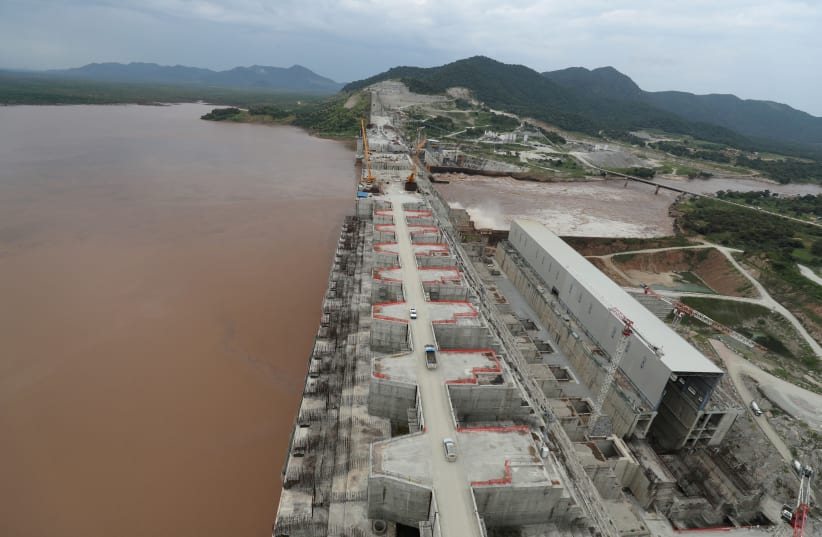For more stories from The Media Line go to themedialine.org
Despite indicating last month that it would be open to a partial agreement with Addis Ababa over the GERD, Khartoum completely rejected Ethiopia’s plan Sunday for the second filling of what will be the largest hydroelectric dam on the continent.“As I see it, Sudan will be open to the second filling deal if it is only about filling the reservoir,” Ashok Swain, UNESCO chair of international water cooperation and director of the Research School of International Water Cooperation at Uppsala University, Sweden, told The Media Line.
Ethiopia is set to capture 13.5 billion cubic meters of water, triple the amount it obtained in 2020, for its inaugural filling.
“Ethiopia’s proposal for the second filling was a good beginning, but I think the real problem has been the Ethiopian plan to expand the negotiation scope. It has intended to move from water management to water sharing,” he added.
The estimated $4.8 billion dollar project is a sticking point for Sudan, as well as Egypt, because the dam is being constructed on the Blue Nile River, which, along with the White Nile, is one of the Nile River’s most important tributaries. Both countries are situated downriver from the GERD.
Addis contends that the dam is a crucial source for the country’s future prosperity, both energy-wise and financially.
Cairo and Khartoum, on the other hand, are concerned about the impact GERD will have on their water supply, particularly, that it will lessen available resources.
Egypt is particularly concerned that the dam may spur other nations connected to the Nile to initiate similar ventures.
Six years ago, Sudan, Egypt and Ethiopia agreed to a declaration of principles calling for the three to work together on GERD and saying that water would be equitably divided.
“The Nile is a shared resource which needs to be managed via cooperation. A GERD deal will enhance that process,” William Davison, senior analyst for Ethiopia at the International Crisis Group, told The Media Line. “There will be no critical downstream shortages just because Ethiopia starts filling without a deal, but there is the threat of reduced cooperation and increased regional instability.”
Despite this agreement, a resolution has never been struck. The most recent most example of this was in early April, when African Union-led talks collapsed after several days.
“The problem to finding an agreement is the lack of mutual trust among and between the basin countries and the fast fall of Ethiopia’s standing as a reliable partner,” Swain said.
Sudan’s most recent rejection of the second GERD filling is particularly important because Khartoum stands to benefit much more than Egypt from the construction of the dam.
“While Sudan has many positives to take home from the cooperative use of the GERD, Egypt has very few,” he said. At the same time, if Ethiopia and Sudan come together, Egypt also has limited options to stop Ethiopia from going ahead with its water projects upstream.”
Thus, not all parties are unhappy about the inability for Sudan and Ethiopia to reach a compromise.
“Sudan’s rejection of the second filling proposal provides renewed hope to Egypt of diplomatically forcing Ethiopia to reach a binding agreement on the filling and operation of the GERD,” Swain said.
Swain believes that the talks would be more successful if Ethiopia focused on the aspect of the dam that is a mutual benefit to the trio.
“As long as the issue is hydropower production, all three basin countries can gain if they cooperate,” he said. “However, if Ethiopia moves the goal post and asks to divert the water upstream, it will not be a ‘win-win’ situation.”
For now, Swain believes that short-term deals are the best hope of reaching agreement between Sudan and Egypt with Ethiopia.
“Despite the critical mediation by the UAE, the possibility of reaching a binding agreement before the second filing looks remote,” he said. “So, like Sudan, Egypt will possibly opt for an interim agreement of the second filling if it is limited in its scope and comes with a promise to a final deal before the third filling.”
